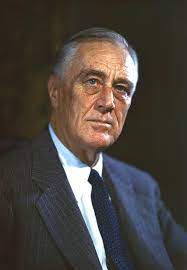On August 11, 1965, one of the most significant events in the history of civil unrest unfolded in the Watts neighborhood of Los Angeles, California. The Watts Riots, also referred to as the Watts Rebellion, were a series of violent protests that erupted in response to long-standing racial tensions and social injustices faced by the African American community.
The Watts neighborhood was predominantly African American and had been plagued by poverty, discrimination, and police brutality. The simmering frustrations and discontent reached a boiling point on August 11 when a routine traffic stop escalated into a violent confrontation between a Black motorist, Marquette Frye, and white police officers.
The arrest of Frye, along with allegations of excessive force, sparked outrage among the local community. As news of the incident spread, anger and frustration erupted into widespread protests, looting, arson, and violence. The riots quickly spread throughout the Watts area, lasting for six days until order was restored on August 16.
During the riots, numerous buildings were set ablaze, including businesses, homes, and even public facilities. The violence resulted in the deaths of 34 people, the majority of whom were African American, and left over 1,000 injured. The destruction caused by the riots was estimated to be in the millions of dollars.
The Watts Riots were a reflection of the deep-seated racial tensions and systemic injustices prevalent in American society during the civil rights movement era. African Americans in Watts and other marginalized communities faced discrimination, limited economic opportunities, and unequal treatment under the law. The riots served as a powerful expression of frustration and anger over these injustices.
The events in Watts also highlighted the strained relationship between law enforcement and minority communities. The Watts Riots were fueled by years of police brutality and racial profiling, which had created an atmosphere of distrust and resentment. The incident involving Marquette Frye was seen as a catalyst that exposed the underlying issues and systemic racism faced by the African American community.
The Watts Riots had a profound impact on American society. They brought national attention to the ongoing struggle for civil rights and racial equality. The riots served as a wake-up call for the nation, forcing a reassessment of social and economic conditions faced by African Americans and other marginalized communities.
In the aftermath of the riots, efforts were made to address the underlying issues that led to the unrest. Community leaders, activists, and government officials worked together to implement social and economic reforms in Watts and other disadvantaged neighborhoods. Programs aimed at improving education, job opportunities, and community development were established to uplift the community and address the root causes of discontent.
The Watts Riots served as a turning point in the civil rights movement, contributing to a broader national conversation about racial inequality and social justice. The events of August 11, 1965, continue to be remembered as a stark reminder of the enduring struggle for equality and the need for systemic change.






